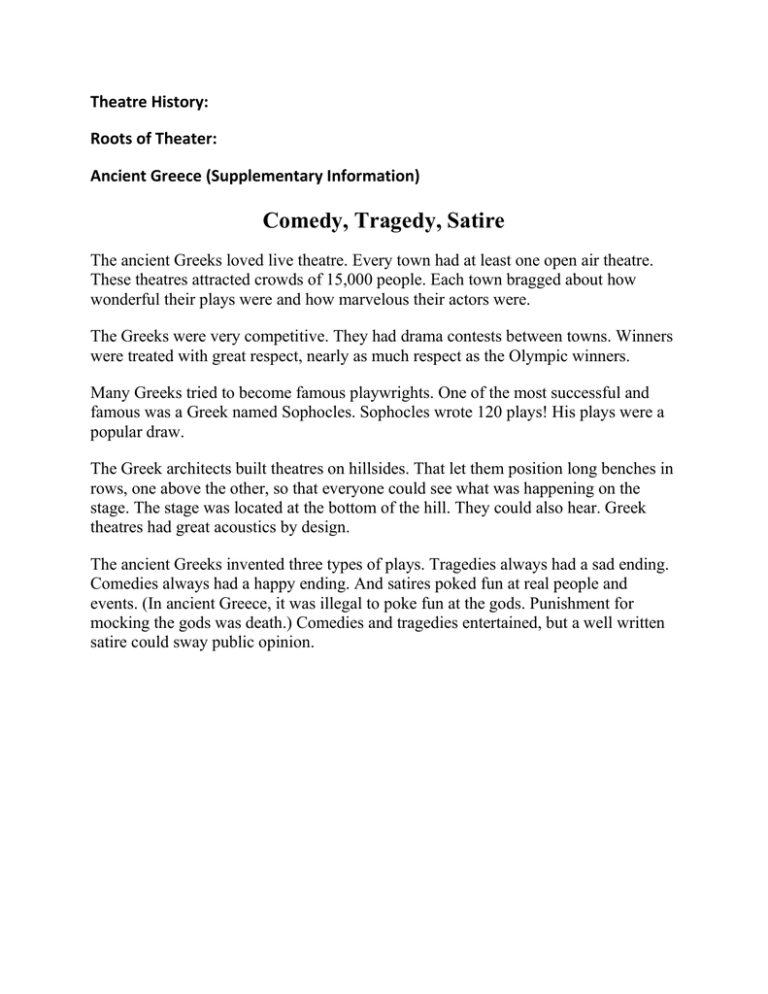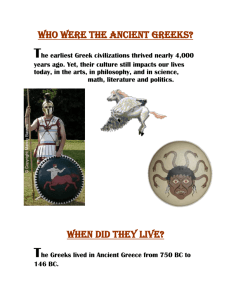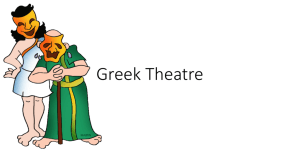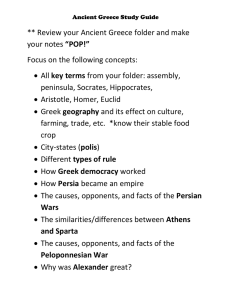Comedy, Tragedy, Satire Theatre History: Roots of Theater: Ancient Greece (Supplementary Information)
advertisement

Theatre History: Roots of Theater: Ancient Greece (Supplementary Information) Comedy, Tragedy, Satire The ancient Greeks loved live theatre. Every town had at least one open air theatre. These theatres attracted crowds of 15,000 people. Each town bragged about how wonderful their plays were and how marvelous their actors were. The Greeks were very competitive. They had drama contests between towns. Winners were treated with great respect, nearly as much respect as the Olympic winners. Many Greeks tried to become famous playwrights. One of the most successful and famous was a Greek named Sophocles. Sophocles wrote 120 plays! His plays were a popular draw. The Greek architects built theatres on hillsides. That let them position long benches in rows, one above the other, so that everyone could see what was happening on the stage. The stage was located at the bottom of the hill. They could also hear. Greek theatres had great acoustics by design. The ancient Greeks invented three types of plays. Tragedies always had a sad ending. Comedies always had a happy ending. And satires poked fun at real people and events. (In ancient Greece, it was illegal to poke fun at the gods. Punishment for mocking the gods was death.) Comedies and tragedies entertained, but a well written satire could sway public opinion. Each play was told in two different ways at the same time. The story was told out loud by a Greek chorus. The story was acted out by performers who did not speak. These performers, or actors, told story using masks and gestures. The same actor might play several different roles. All he had to do was switch masks. Still, it took talent to be a great actor, just as it does today. Thespis was one of the most famous and successful actors in all of ancient Greece. In his honor, actors today are called thespians. Taken from web http://greece.mrdonn.org/theatre.html







